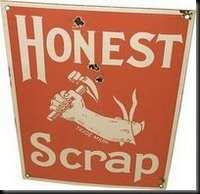The first time I visited the Vietnam War Memorial, known as "The Wall", in Washington D.C. I wept. It was probably one of the most emotional moments of my life. Just reaching up and touching the name of a human being, lost in an unknown way in an unwalked land, was a profoundly moving thing for me. The other 58,194 names I did not touch beckoned.
I was in D.C. on a business trip for my then employer, an international environmental non-profit, and I had some off time. I spent one whole day in the Smithsonian (I love this museum), mostly in the archeology and paleontology sections then I hoofed it over to The Wall.
I was just stunned.
This huge black granite wall with the names of some 58,195 men and women who lost their lives in the Vietnam War conflict is both imposing and fragile at the same time. It is overwhelming. The environment there was so quiet one could have heard a pin drop... this in the middle of a noisy city not known for "quiet" of any kind. For those alive when the Vietnam War was raging, and who have visited the The Wall, the contradiction between the noisy protests and news debates and the memorial's deadly silence is a profound--and for me startling--sensory contradiction.
No one in my then-tiny (and now tinier) family served in Vietnam. I did have friends who returned alive and friends that did not. I also had friends that refused the draft and either left the country or escaped the draft through conscientious objector (CO) status.
My opposition to the Vietnam conflict remains. My visit to The Wall did, however, bring something additional to my feelings about that time and that war: Profound sadness, and a deepened respect for those that did meet the call or volunteered, many of whom now live as a name on a wall.
The memorial also deepened my commitment to oppose unjust military involvement on foreign shores.
At the time of my visit to The Wall, The Gulf War had just ended amid PR'd manufacturing of horrible human abuse by international PR czars at Hill and Knowlton under contract to the government of Kuwait. They had been hired to set the stage for the U.S. intervention. The famous story about babies being taken from their incubators in Kuwait--the incubators stolen by Iraqi soldiers--was just one of these PR manufactured atrocities, if not the most famous.
As the aforementioned linked article discussees, this lie was circulated through congress, the media and the public for at least three months prior to the beginning of the war. NO ONE caught it, but everyone got it. The outrage was in place to shore up our intervention which was really about oil.
Up until the Iraqi conflict (now playing), this was the most successful PRing of a war. Bush II, though, broke all previous barriers in lying about the known conditions on the ground in regard to WMDs prior to the current conflict while international weapons inspectors (who, contrary to Bush's lies, had NOT been thrown out of Iraq, but TAKEN out) were getting little or no press while insisting there were no WMDs left in Iraq. The lies continue to this day.
I feel so conflicted about Memorial Day for two reasons: I respect those that believe they are acting in reason for good purpose, but I do not respect our government for lying to all of us, the soldiers included, about our involvement in deadly conflict let alone using American men and women as pawns for unGodly economic or political purpose.
Though I generally disdain the phrase "hate the sin, not the sinner", this particular usage I can somewhat live with in this circumstance for lack of a decent substitute.
So this Memorial day, I prayed for our country, our soldiers and their families and friends, our enemies, and for the innocents caught in the middle whose names will never be found on any wall.
How do we find middle ground?
6 years ago










|